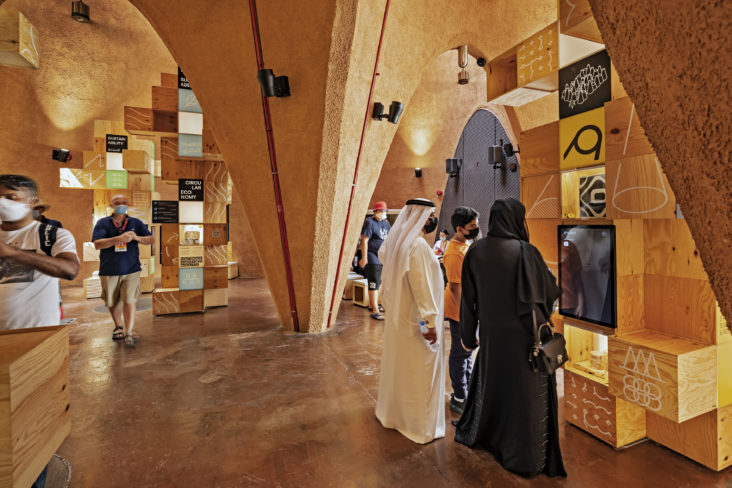Austria Pavilion At Expo 2020 Addresses The Future Of Work, Life, And Education

The Austrian Pavilion at Expo 2020 Dubai is set to host an art show and online symposium to look at three key areas of life and seek answers to questions pertaining to the world’s future. The programme titled ‘The Future of Work, Life, and Education’ is presented in collaboration with GRASP Network – a research and communication display that brings forth new forms of generation of meaning and knowledge in the ever-changing contemporary context.
Focused on Expo 2020’s theme of ‘opportunity’, the programme has two interrelated displays including an art show titled ‘Doubtful Practices/ Practices of Doubt’, set to take place in the Austrian Pavilion in Expo 2020 Dubai between the 16th of December 2021 and 6th of January 2022. The other section of the programme is the future of work, life, and education symposium and will take place online in a total of three sessions from the 11th to the 27th of January 2022. The programme aims to showcase how life will transform in the coming years and decades and the new resulting opportunities.
Commissioner General of the Austrian pavilion Beatrix Karl said, “We are very excited to bring the voice of Austrian artists and changemakers to the world stage here at Expo 2020 Dubai. The entire programme is focused on the rapid transformation across key areas that will slowly, but surely, disrupt existing systems and bring new opportunities and growth in ways that affect all areas of life.”
Presenting selected works by Austrian artists, the physical art exhibition – curated by Martin Baasch – brings together various perspectives on work, exploitation, science, and belonging. Following the concept of the Austria Pavilion at Expo 2020 and its motto ‘Austria Makes Sense’, the exhibition’s focus is on works that approach the themes in a discursive, but also sensual and emotional way.
The positions range from Ernst Logar’s scientific-artistic preoccupation with the post-petroleum society to the group OCTO-R’s examination of the relationship between paid and unpaid work in society. The Graz-based studio Asynchrome examines economic cycles and contexts of exploitation in their meticulously crafted, large-scale drawings, while Michikazu Matsune and Abiona Esther Ojo address global mobility, border regimes, and questions of cultural belonging in Austria in their contributions.
The exhibition is complemented by an accompanying symposium – conceived by Finnish artist Anja Puntari – which seeks to find answers to complex but important questions such as the kind of opportunities that the future will bring, the changing ways of thinking, working, and education, innovation needed to stay abreast of the competition in a changing world, new skills needed to stay hyper-relevant and more.
This experiential and participatory symposium is strongly influenced by art. The discussions and the interactive sessions called Knowledge Huddles draw inspiration from the world of contemporary art. In this online conference, keynote speakers and participants from all over the world share their insights on what will happen next.
Most importantly, the entire display seeks to answer one vital question; how can humanity face the challenges posed by the future and embrace them as opportunities?
The project was developed with an aim to explore and to make evident how contemporary immaterial productions (such as complex software, mathematics, big data, algorithmic concepts, financial artefacts, but also artefacts of symbolic value, as is the case of art, and knowledge in a broader sense and behavioural abilities such as competences and soft skills) can be visualized – and the consequences they induce and produce.


